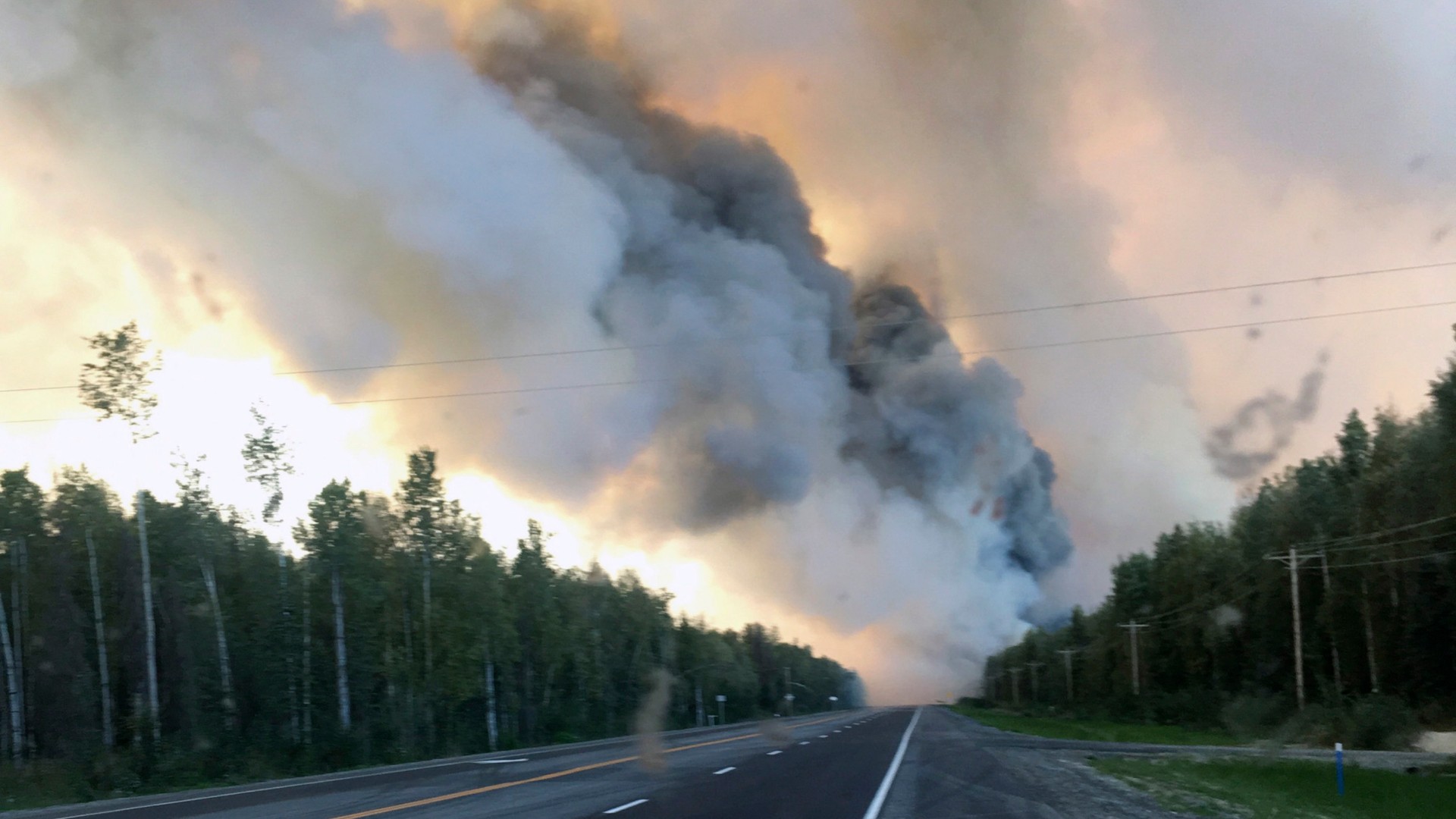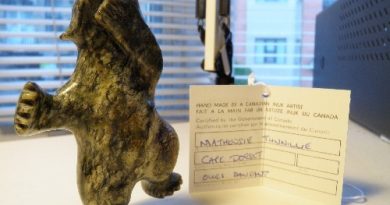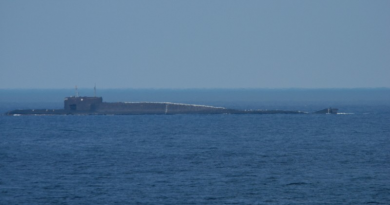Drivers describe ‘hellfire’ on Southcentral Alaska highway Sunday

Marina Brooks was traveling the Sterling Highway from Anchorage to her home in Anchor Point, in Southcentral Alaska, Sunday night with her husband and three children, when shifting winds drove the Swan Lake fire toward the road.
“One moment we were driving through the hazy, dense smoke, and the next thing we were driving through what I would consider to be hellfire,” she said. “It was just orange, it was bleak, the wind was insane, the trees were on fire.”
As with closures last week of the Parks Highway around the McKinley fire that created massive logistical challenges along the state’s main artery, safety officials are trying this week to strike a balance on the Sterling Highway between serious fire hazards and hours-long traffic delays that have left people stranded and desperate, fire managers said in a presentation they streamed Monday on Facebook.
“If you’re going to travel that road, you might see flames, there’s going to be smoke,” said Andy Lyon, the information officer attached to the Swan Lake Fire. “It’s not a normal situation. We’re trying to keep it open for you, we’re trying to keep you safe. If you don’t feel comfortable with smoke and flames on the side of the road, probably not a good time to be traveling that road.”
Sunday night, the highway was particularly harrowing.
In an expletive-laden video posted to Reddit late Sunday night by user AK_grown_XX, a driver and passenger navigate halting-then-speeding traffic as they pass within what looks like a few dozen yards of towering yellow flames devouring spruce trees next to the road.
“I don’t think people should be driving right now,” says a person holding a cellphone and shooting a video of a dark road leading their car closer and closer toward stands of burning trees.
“Oh my god, dude, this is so scary,” says the driver.
“You feel that heat?” the passenger asks as the car speeds past the blaze.
“Do they know that it’s that bad?” she asks.
(WARNING: The video contains strong language)
Brooks, who was traveling to Anchorage Point, said other vehicles along the road alternated between slow rubber-necking and then rapid acceleration, adding another variable to the smoke. That section of the drive normally takes 20 minutes, but she guessed Sunday night it was closer to 45, punctuated by periods where the heat battered the car so intensely that it was hard to breath.
“Depending on which side of the car the fire was on when we were going through, that side definitely felt it more,” Brooks said.
By Monday morning, people who experienced the flare up firsthand severely delayed from the Swan Lake fire, and subject to closure at any time. They’re asking anyone who doesn’t need to transit the impacted areas to stay off the road.
Related stories from around the North:
Canada: Large wildfires in Yukon, northwestern Canada threaten highway, CBC News
Iceland: Better wildfire & agriculture management among recommendations from Arctic Council black carbon expert group, Eye on the Arctic
Norway: Arctic summer 2019: record heat, dramatic ice loss and raging wildfires, The Independent Barents Observer
Russia: 2019 Arctic wildfire season ‘unprecedented’ say experts, The Independent Barents Observer
Sweden: Study on Swedish wildfires shows how to make forests rise from the ashes, Radio Sweden
United States: Calm winds helping firefighters battle wildfires in southcentral Alaska, Alaska Public Media



